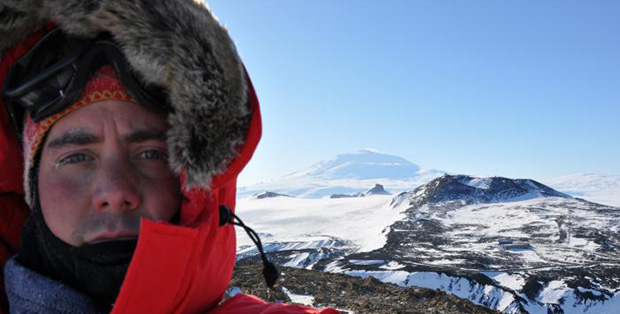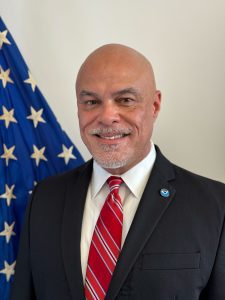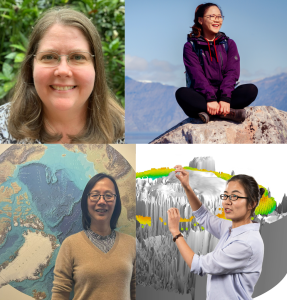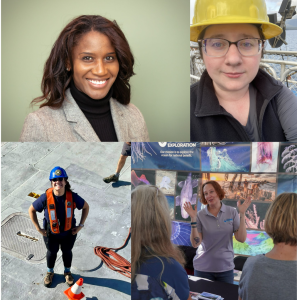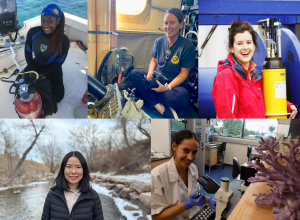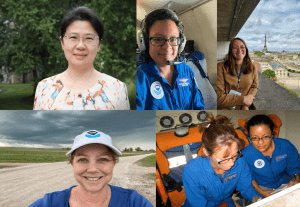Going to the Ends of the Earth for Science
Late March is a pivotal time around the globe. It marks the start of spring in the Northern Hemisphere, and the coming of autumn in the Southern Hemisphere. In Antarctica, it’s when the sun drops below the horizon, not to rise again until the following September. NOAA researchers at the South Pole Observing Station continue their work through the long Antarctic night. NOAA Corps Lieutenant (junior grade) Nick Morgan, who works for the NOAA Earth System Research Lab, is spending a year there collecting data to help scientists better understand global climate trends.
Read the following question and answer interview with Lt. j.g. Morgan to learn about his work and life at the South Pole.
1. Why does your research matter?
Climate is a huge topic of discussion lately. Some of our data that we collect, such as carbon dioxide measurements and solar radiation, have been going for over 50 years which makes them the longest running measurements of their kind. Long term continuous data is important for climate studies to be able to pick out trends. On a short time scale, climate varies a lot and it’s hard to see what’s happening. The data that we collect is also used to improve climate models so that we can try to see changes in the future effectively.
2. What do you enjoy the most about your work?
I enjoy the fact that each air sample I take is more or less a part of history. These samples get added to a dataset that is used by scientists and governments around the world. There is a lot of satisfaction in knowing that there are some big environmental decisions that may be made in the future based on some of the data that I collected.
It’s also quite an experience being able to spend a whole year at the South Pole!
3. Where do you do most of your work? In a lab? In field studies?
Most of it is done in a lab environment. All though it could be said that just being in a place like Antarctica would be a field environment. We have very good facilities here though and the new Amundsen-Scott South Pole Station is very comfortable. We do spend some time outside though, launching ozonesondes and collecting air samples in flasks once a week. We also do a little bit of maintenance of our instruments on the roof and meteorological tower.
“I enjoy the fact that each air sample I take is more or less a part of history.”
4. What in your lab could you not live without?
Internet! Most of our data is collected and transmitted via satellite internet. The only thing that isn’t are the flask samples which get collected and stored throughout the winter, and shipped back to Earth Systems Research Laboratory (ESRL) in Boulder, Colo., upon station opening in October. If we were to lose this perk, there would definitely have to be some changes to the way things operate around here.
5. If you could invent any instrument to advance your research and cost were no object, what would it be? Why?
It might be best to ask this question to the project leaders back at ESRL. I’m sure they have a long wish list. But things operate pretty efficiently around here. We have very little down time in collecting data. The Global Monitoring Division (part of ESRL) has a pretty extensive network of observatories but I’m sure there are some gaps out there that they would like to fill in. Especially over the oceans. Maybe putting an Atmospheric Baseline Observatory on every commercial shipping vessel would do the job!
6. When did you know you wanted to pursue science?
I had an interest in weather and told my parents that I wanted to be a meteorologist since I was in grade school. When finishing up high school and looking at colleges, I decided that I wanted to study Atmospheric Science even though I wasn’t really sure what I would do with the degree. I’m glad I did because it’s worked out well for me. Upon graduation I joined the NOAA Corps and have gotten to travel all over in support of science. My advice to anyone wondering what they should study when going to college would be to do something you have a passion for. The rest will work itself out.
7. What’s at the top of your recommended reading list for someone wanting to explore a career in science?
The Exploratorium’s Ice Stories website is great place to see what scientists do in the field. Granted it focuses on polar scientists, I would guess many of the experiences would be similar to those of other scientists.
8. And how about a personal favorite book?
I enjoy anything by Clive Cussler and Michael Chrichton. I think they both are good at incorporating science into their stories in entertaining ways. Besides, doesn’t every NOAA Corps officer dream of being Dirk Pitt? The James Bond/Jacques Cousteau/Indiana Jones main character?
9. What part of your job as a NOAA scientist did you least expect to be doing?
Easy. Living at the South Pole for a year.
10. Do you have an outside hobby?
I’m a golf junkie. Unfortunately the South Pole isn’t the best for golf. But I did get a round in when I was in New Zealand on R&R.
11. What would you be doing if you had not become a scientist?
Maybe something in the military or a golf course superintendent. Being in the NOAA Corps gives me a bit of a taste of military life, and I like it. The major thing we don’t have to worry about is being in a combat zone. I think that by being in a combat zone you would really get to see what you’re made of.
12. Who is your favorite historical scientist and why?
I think it would be Jule Gregory Charney. He is the guy who derived the quasi-geostrophic potential vorticity equation which brought numerical weather prediction to life. Synoptic Meteorology was one of my favorite classes in college and QG theory is a big part of it. So I think it would have to be him.
Read more about Lt. j.g. Morgan on the Exploratorium’s Ice Stories Web site at http://icestories.exploratorium.edu/dispatches/author/nick-morgan/
Watch a video interview with Lt. j.g. Morgan and colleagues on their South Pole work, also on the Exploratorium’s explo.tv web site. Look for the Dec. 17, 2009, video at http://www.exploratorium.edu/webcasts/archive.php?cmd=browse&project=9
